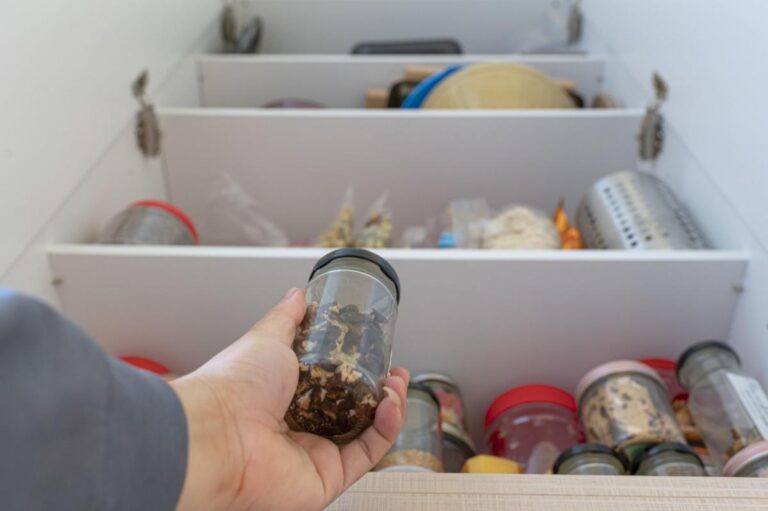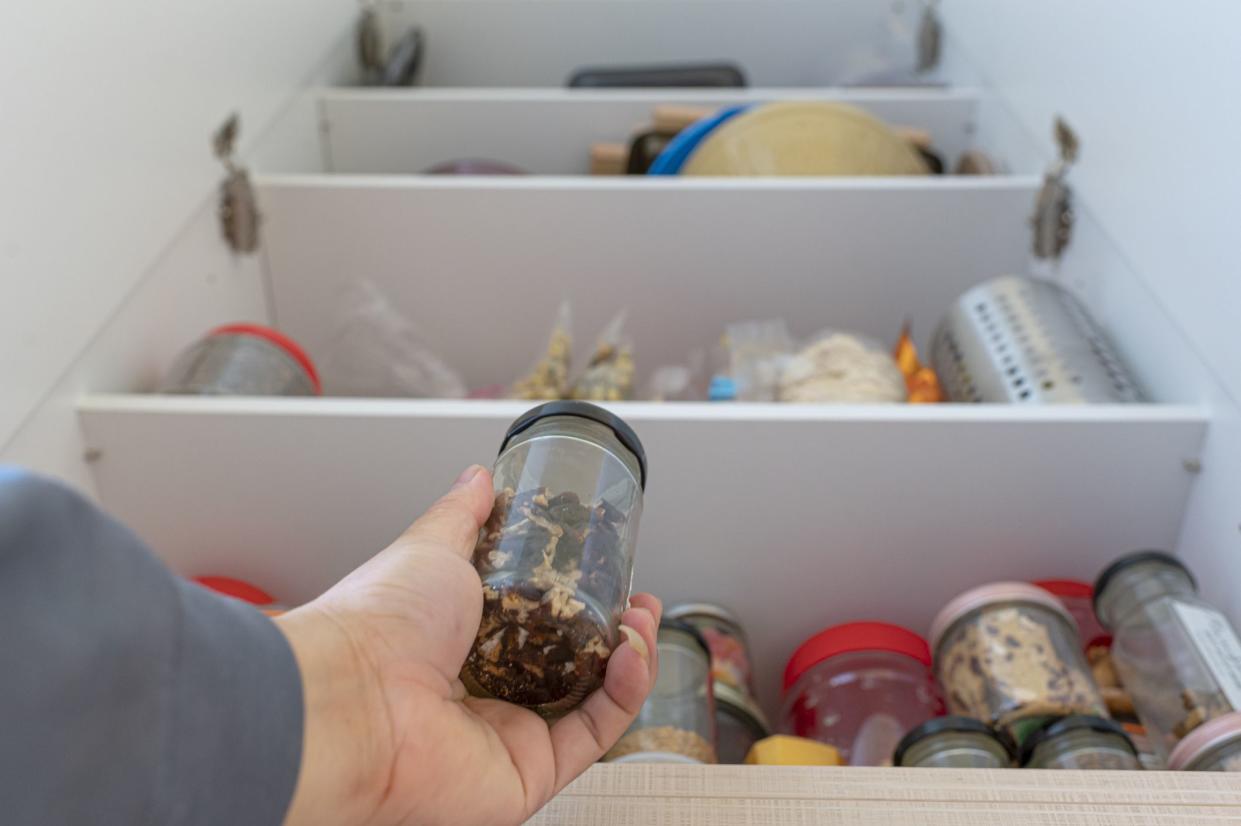
Bulk Up
Supermarket sales are an attractive opportunity to stock up on groceries, and warehouse stores like Costco sell large quantities of food at low unit prices. Smart shoppers who buy in bulk can pack in cheap meals or “grocery runs” when money or time is tight. But no matter how attractive the price, buying more food than your family can eat before it goes bad can waste money. Plus, some items have a shorter shelf life than you might think. Here are 10 foods you can safely buy in bulk.
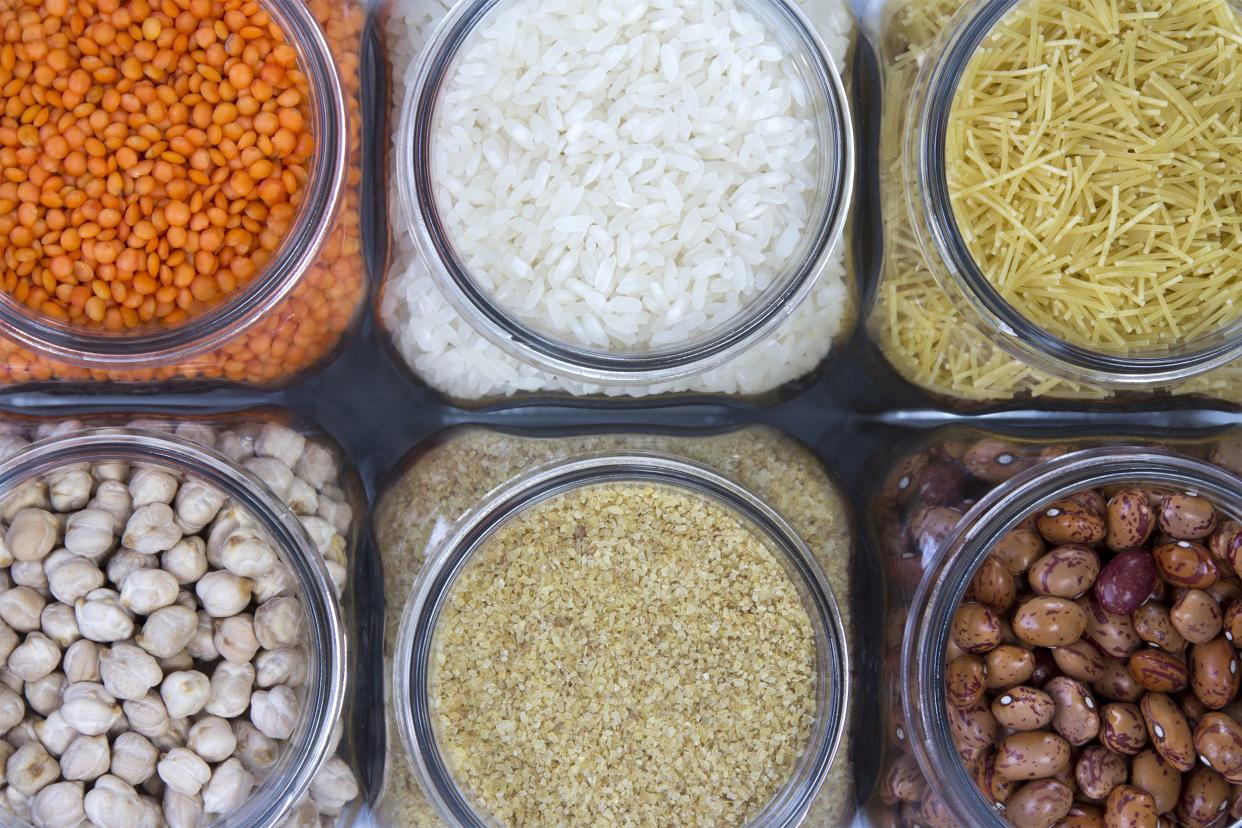

1. Grains and legumes
Inexpensive foods like dried beans, pasta, and grains are great to stock up on because they can be stored for years. For example, white rice can be stored for up to 30 years without losing flavor or quality, according to a study from Brigham Young University. Store these foods in airtight containers in a cool, dry place to keep out moisture and insects.
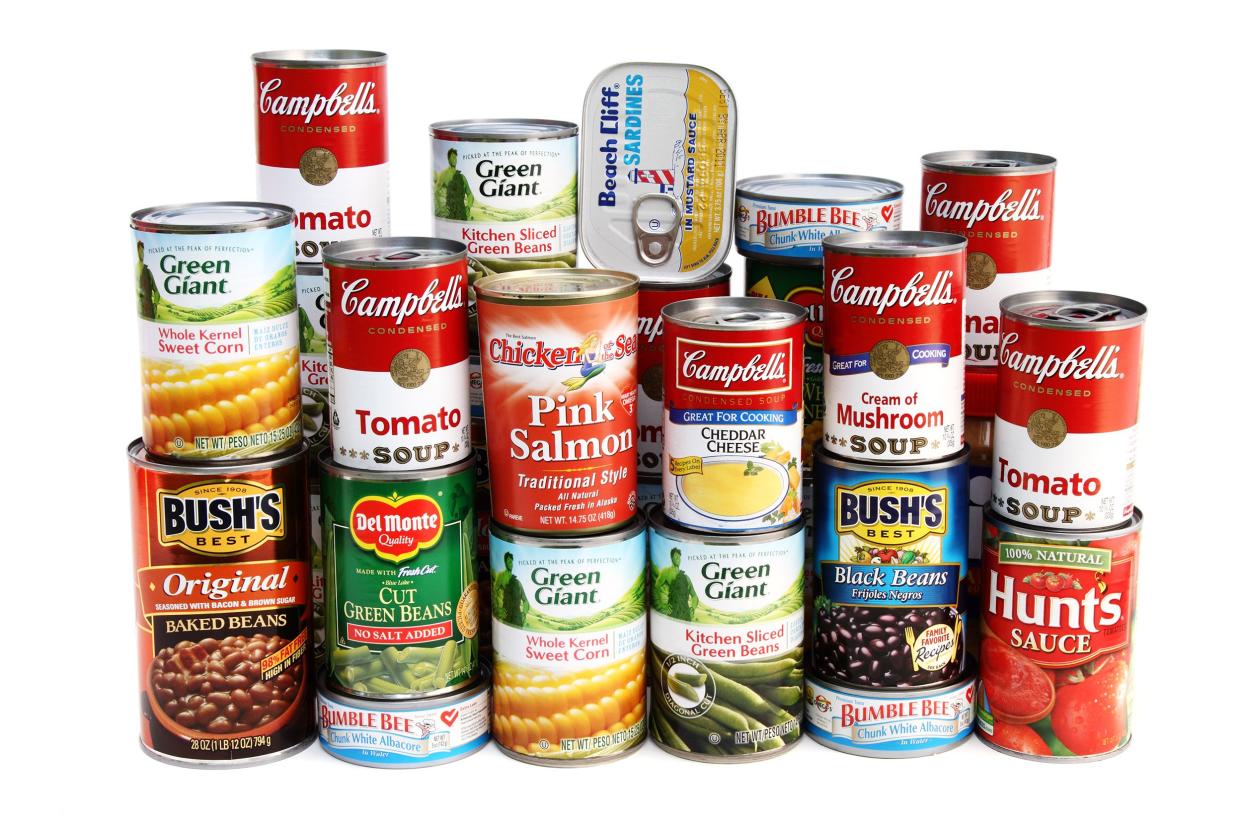

2. Canned foods
Pay attention to “use by” dates and buy only as many cans as you think you'll use by that date, which may be years in the future. Low-acid foods, like tuna or soup, will last much longer than acidic foods, like tomatoes or pickles (the acid will eventually start to eat away at the container). The USDA warns against exposing canned goods to extreme temperatures and recommends discarding any dented or bulging cans.
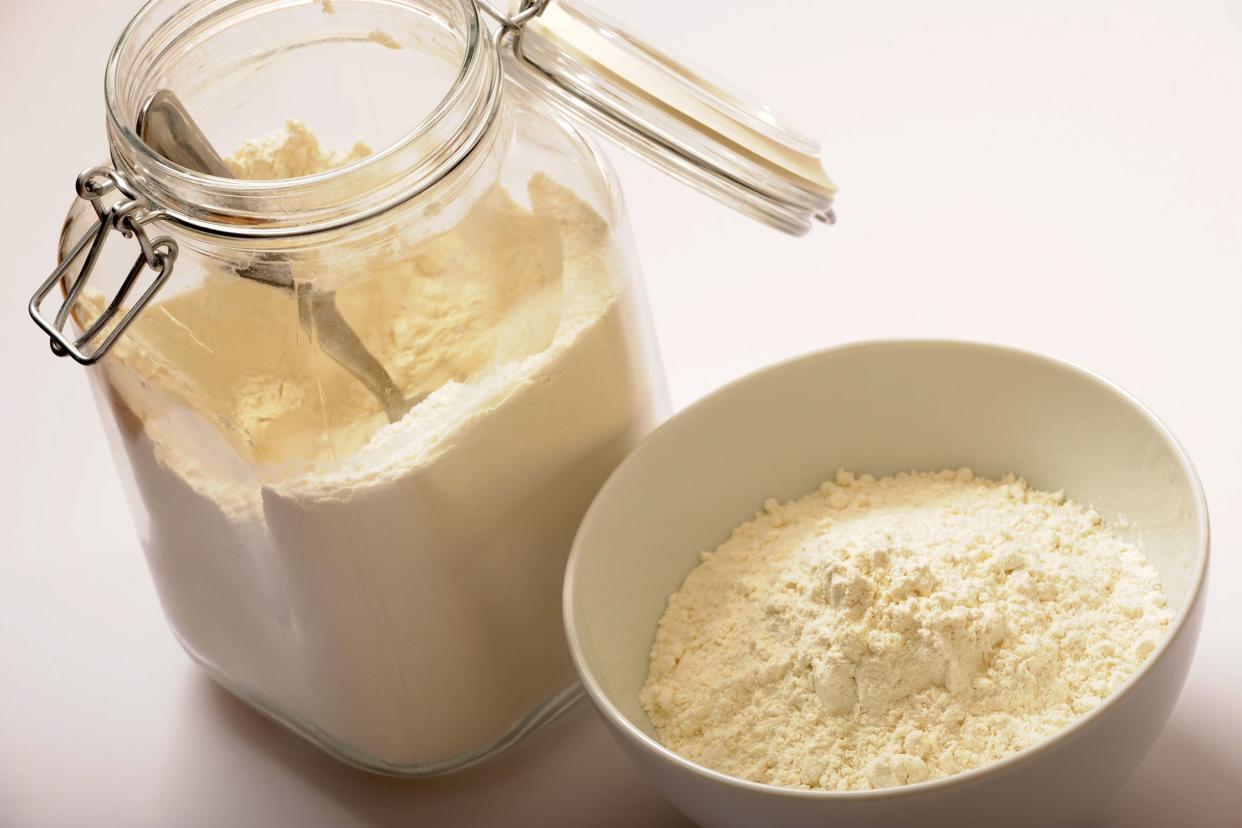

3. Baking classics
Flour and sugar will last for several years if stored in an airtight container (air lets in bugs) away from light, heat, and moisture. The exception is whole wheat flour (wheat germ can spoil after a while), but even that will last for a year or two if refrigerated. Pure vanilla is expensive, but buy a big bottle if it's on sale; it contains alcohol, so it will last forever. Bulk dark chocolate will last about two years if stored away from light and heat. It may turn gray, but that's no problem if you melt it and turn it into a delicious chocolate treat.
Don't stock up on baking powder or baking soda unless you bake bread every day or use it for other purposes, such as freshening the refrigerator or brushing your teeth. After about six months, their leavening power begins to weaken.
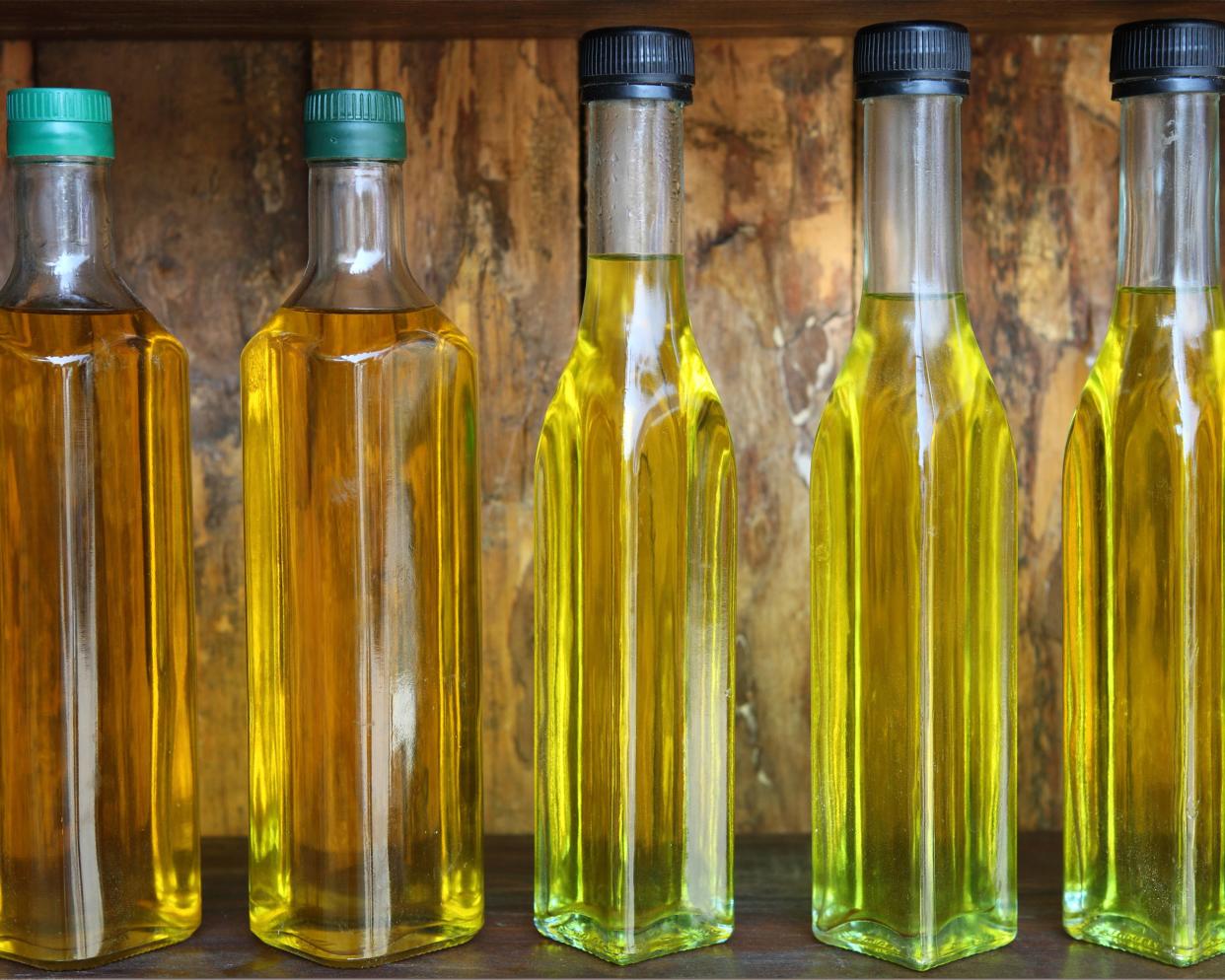

4. Oil
Oils are often expensive, so stock up when they're on sale. Get several smaller bottles rather than oversized bottles or cans. Unopened oils will last 2-3 years, but once opened, they oxidize quickly. Storing olive oil in the refrigerator will extend the life of an opened bottle by at least a year. The oil may become cloudy and thick, but the flavor will not be affected. Nut oils (sesame, walnut, grapeseed) will start to spoil in 6-8 months in the refrigerator. Heat and light are enemies, so if you must store oils near the stove, store them in small containers that will be emptied quickly.
For great meal ideas and grocery tips, Please sign up for our free newsletter.
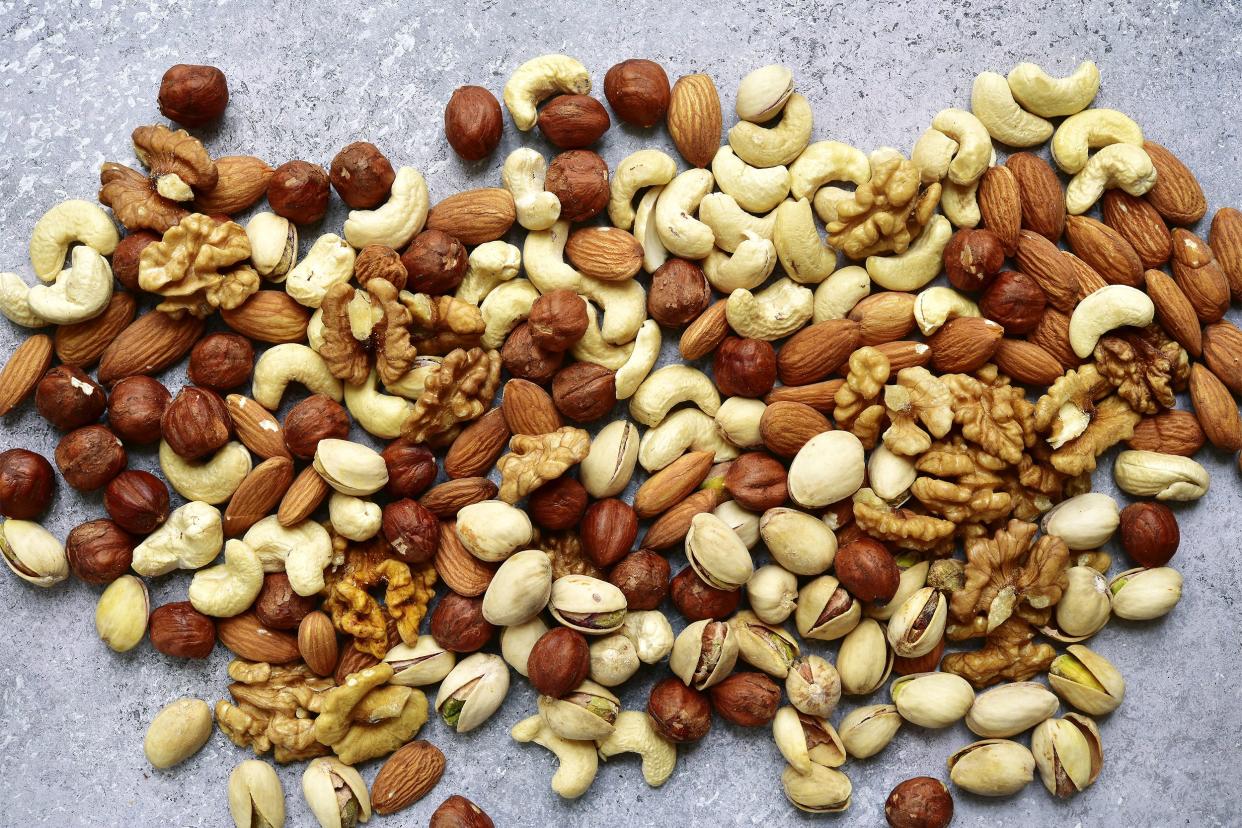

5. Nuts
Nuts contain oils and, like oils, can go rancid and taste funny. Nuts will last a few weeks in the pantry, but up to a year in the freezer. Processed nut butters, such as peanut butter, will last longer in the pantry than nuts, up to a year in an unopened jar and several months once opened. Natural nut butters without preservatives have a shorter shelf life and should be stored in the refrigerator for up to 6 months after opening.
Related: Emergency supplies to stock up on at Costco and Sam's
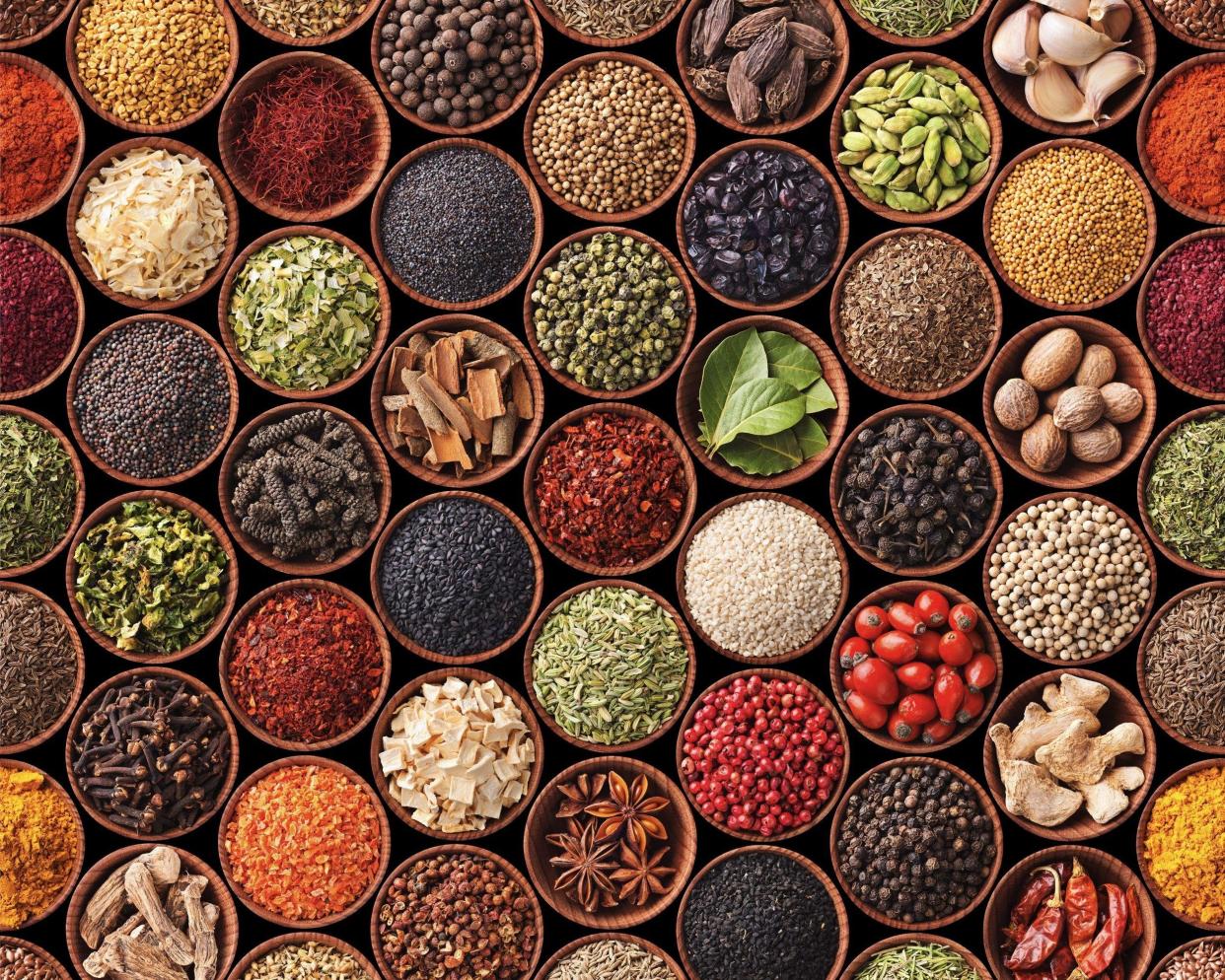

6. Herbs and spices
It's sometimes worth buying larger containers of herbs and spices if you find a good deal. Dried herb leaves such as thyme, oregano and rosemary will retain their flavour for up to three years, while powdered or ground versions will last much shorter. Keep dried herbs away from light, heat and moisture, but never in the fridge as they can absorb odours. Salt can be stored forever and whole pepper will remain potent for several years. Keep both away from moisture. Whole spices such as cloves, nutmeg and cinnamon sticks will retain their flavour for a long time but are rarely on sale.
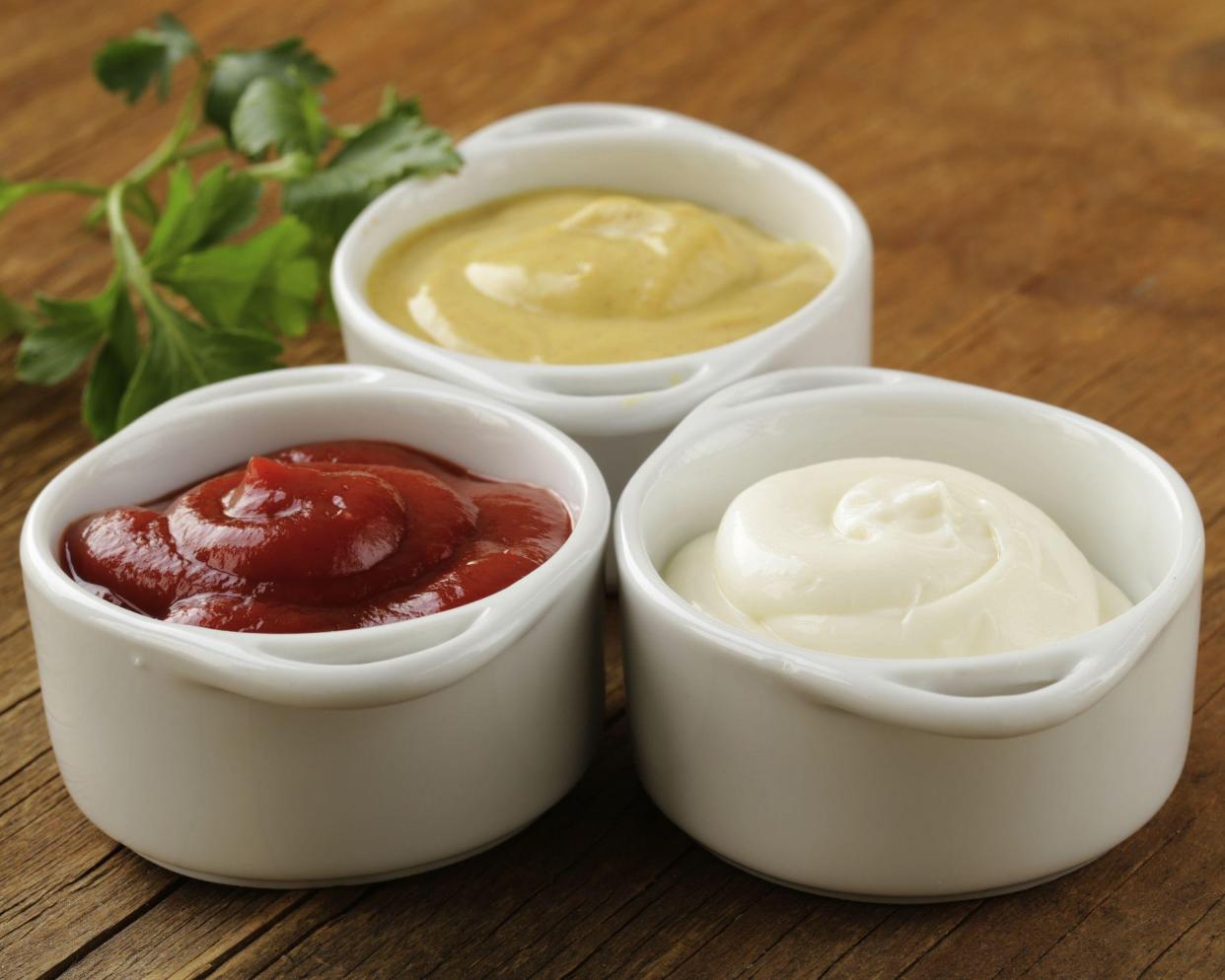

7. Condiments
Condiments like mustard, ketchup, horseradish, and Sriracha often go on sale and stay effective for at least six months after opening. Salad dressings and mayonnaise should be used as soon as you open the bottle, but unopened bottles can last for quite a long time, so buy multiples if storage space is not an issue.
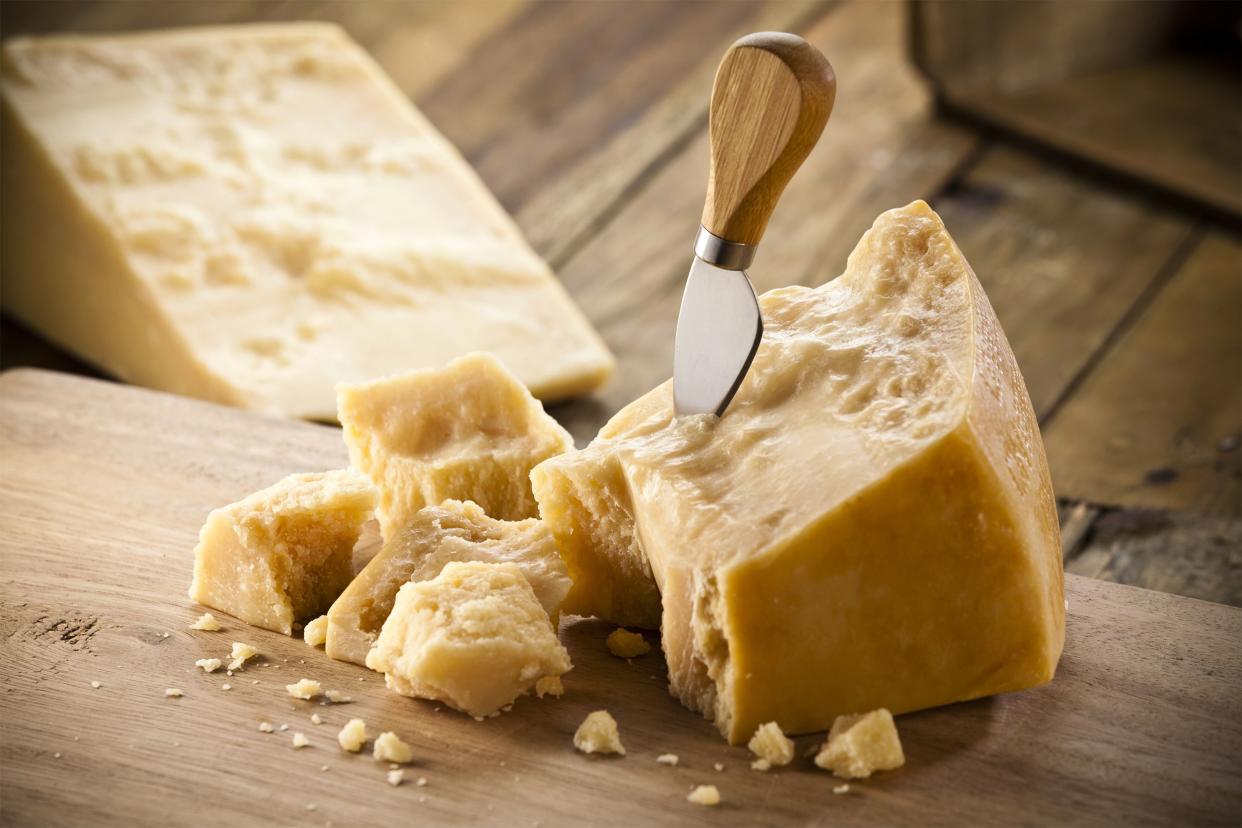

8. Dairy products
Most dairy products have a short shelf life, but some can be bought in bulk and frozen. Hard, semi-hard and aged cheeses like cheddar, Monterey Jack and Parmesan can be frozen for up to four months if tightly wrapped. (Frozen cheese is best grated or cooked rather than eaten on crackers or in sandwiches.) Butter freezes well and will keep for up to a year. Eggs can be frozen for up to six months if lightly scrambled with a pinch of salt and placed in a freezer container.
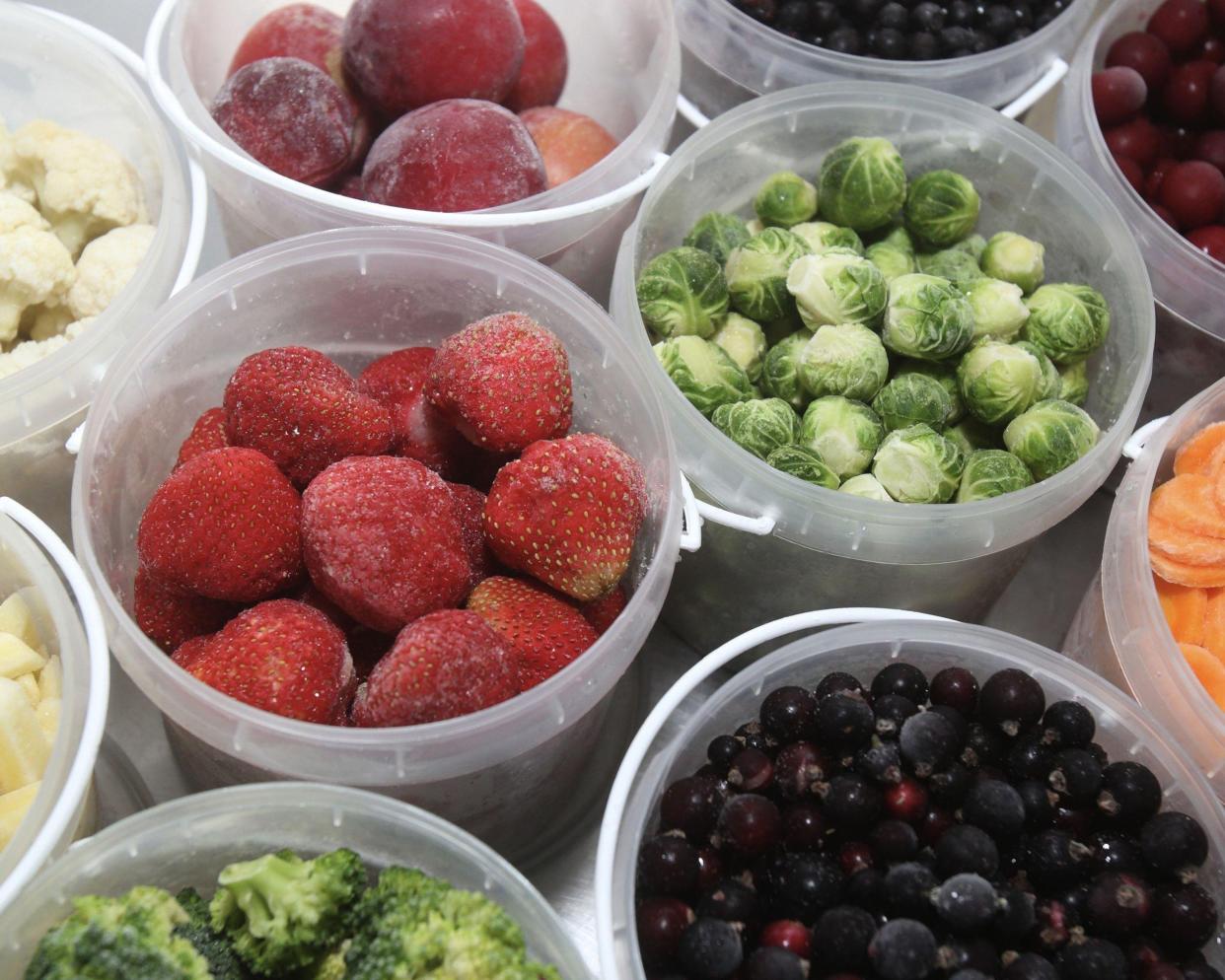

9. Frozen fruits and vegetables
Once sales begin, fill your shopping cart with frozen fruits and vegetables. Frozen vegetables can be stored for up to a year as long as the packaging is unopened and your freezer is kept at the right temperature (usually 0 degrees Fahrenheit). Most fresh fruits can also be frozen. To freeze oranges, peel them, portion them, place them in a freezer container and cover with water. Buy fresh berries when they are cheap and in season, wash them and freeze them on a baking sheet in freezer bags. Frozen fruit will keep for at least 6 months.
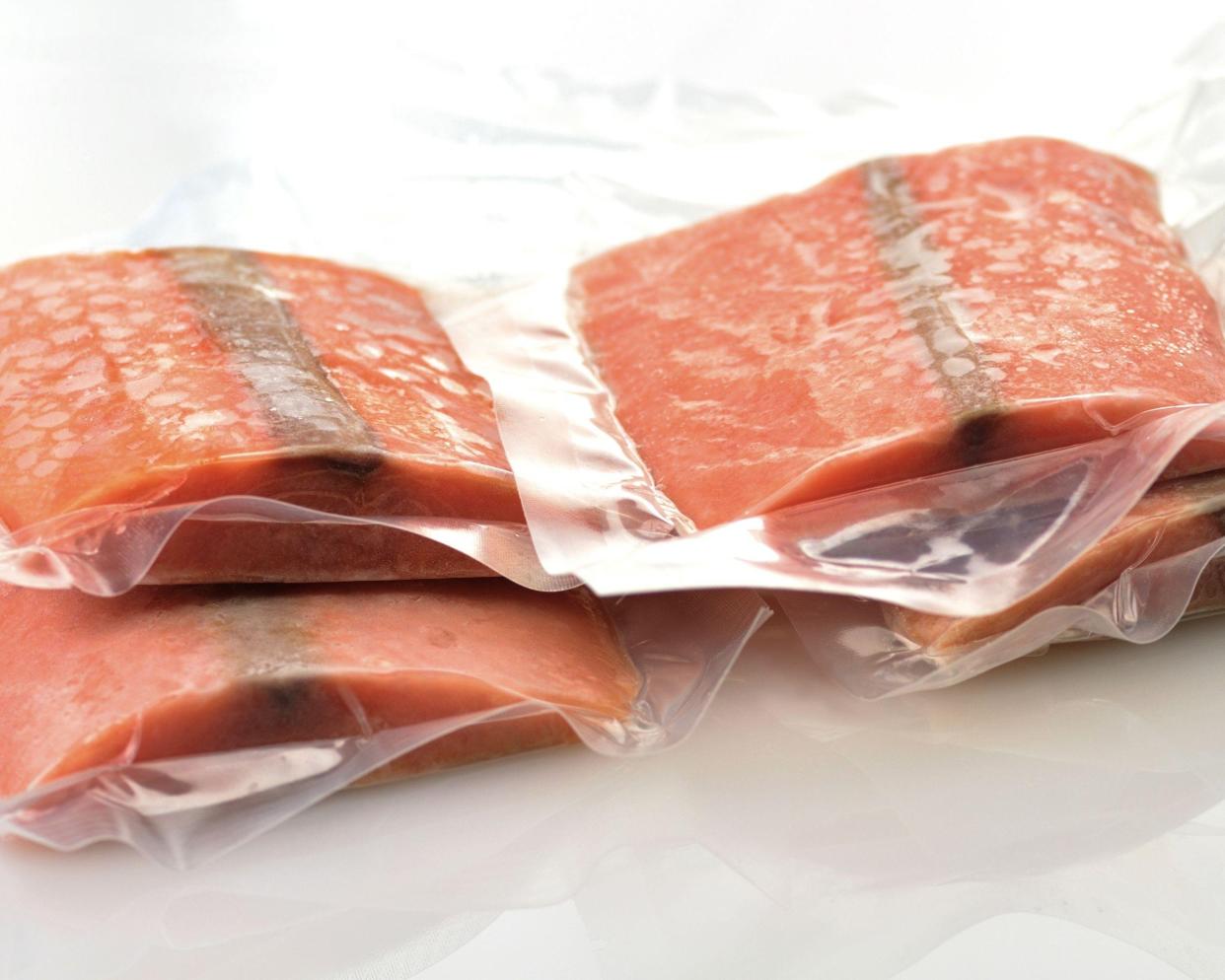

10. Meat and Fish
If your freezer is large enough, meat and fish are great to stock up on when prices drop; once repacked in freezer containers or bags, they can last up to six months. (Note that cut-up chicken will last less time in the freezer than a whole chicken.) The USDA recommends using the freezer for short-term storage (up to three months) if the temperature is set above the recommended 0 degrees Fahrenheit.
This article was originally published on Cheapism




